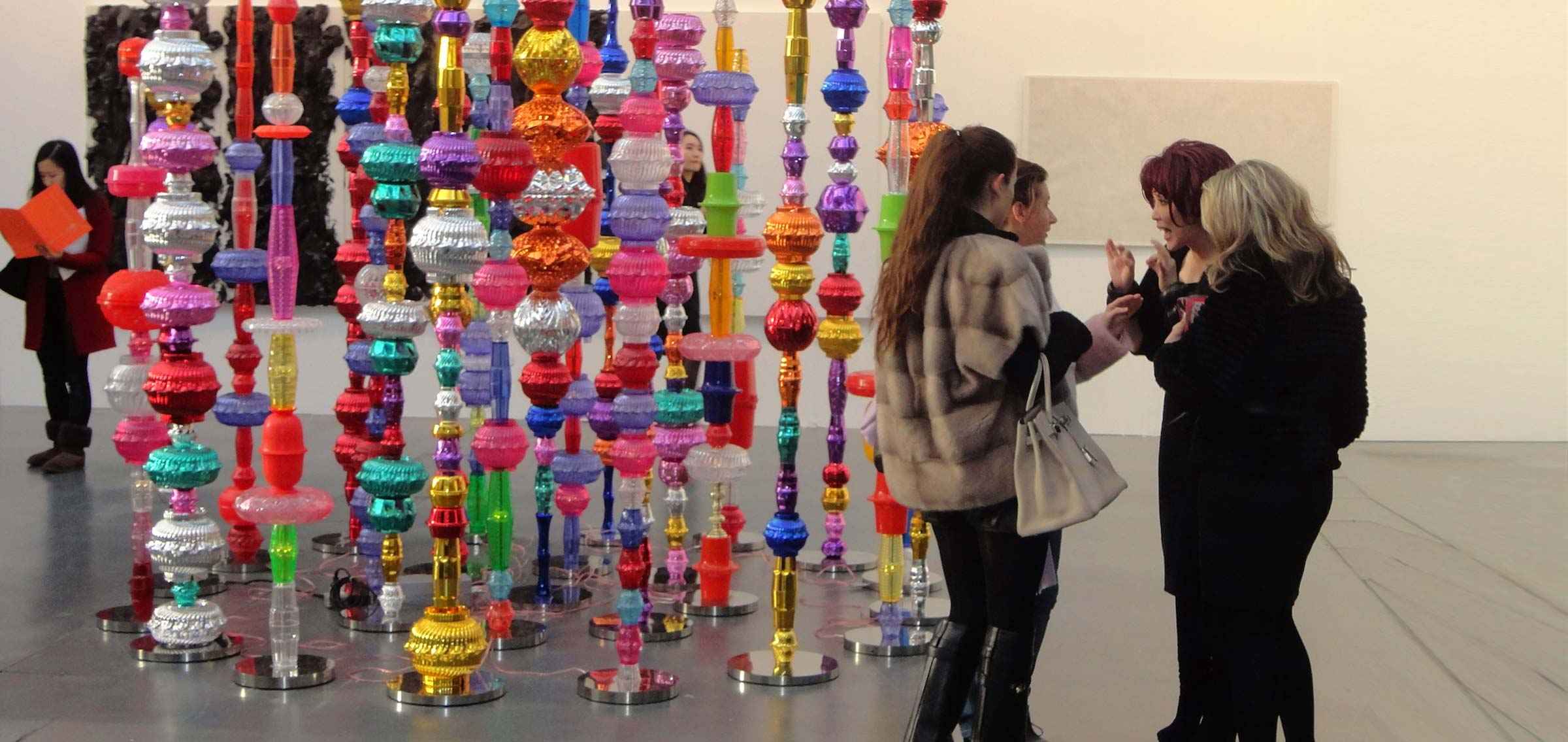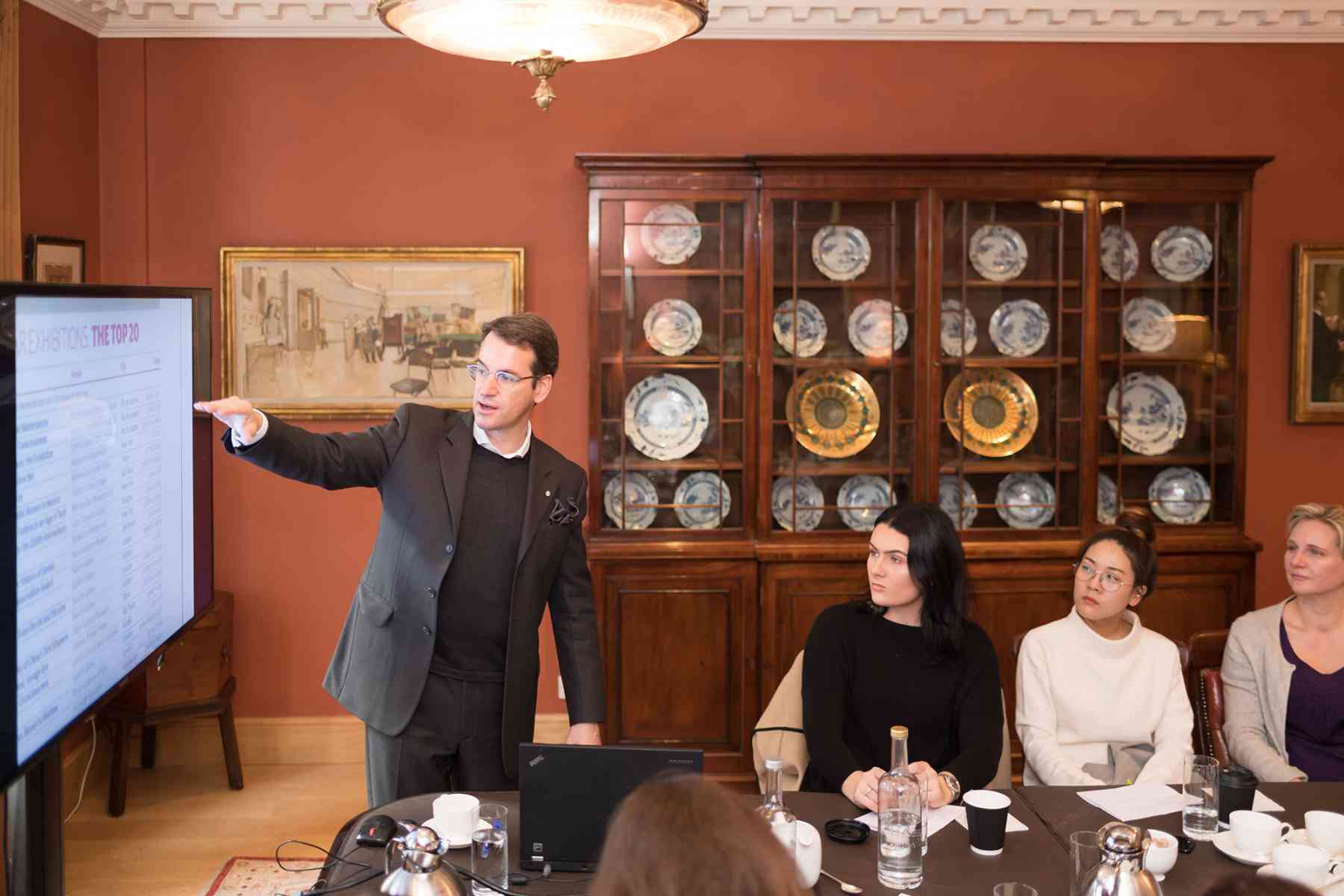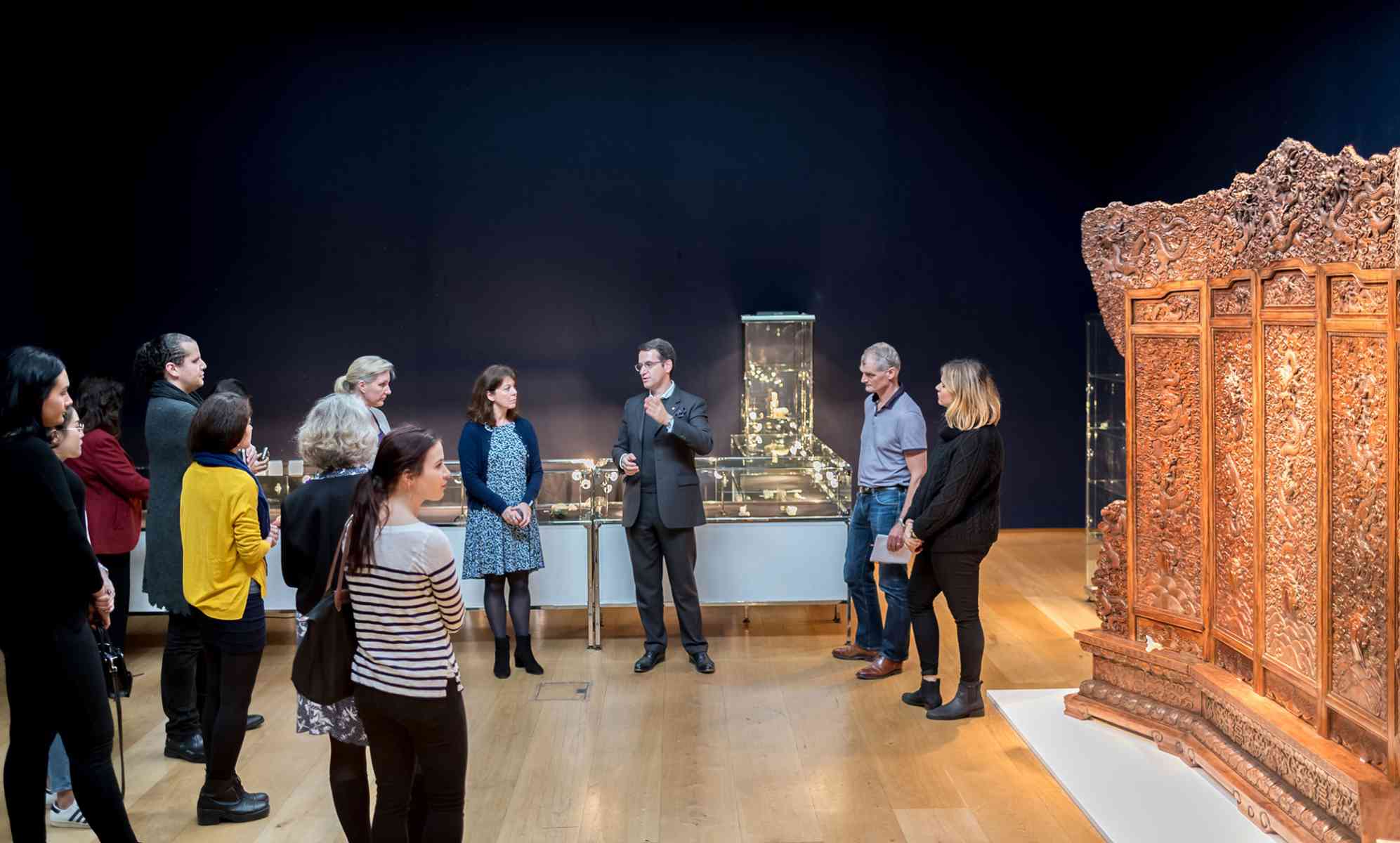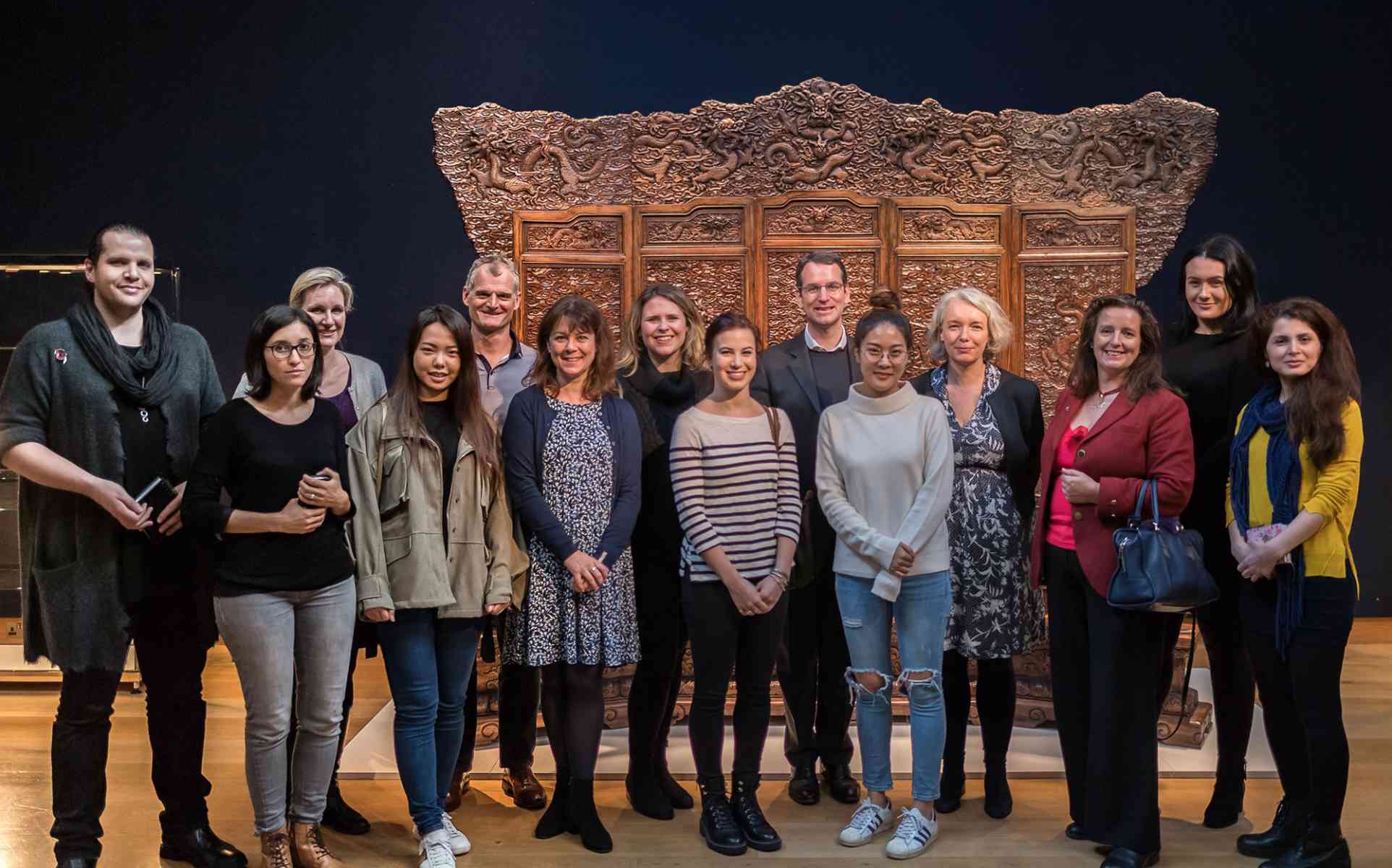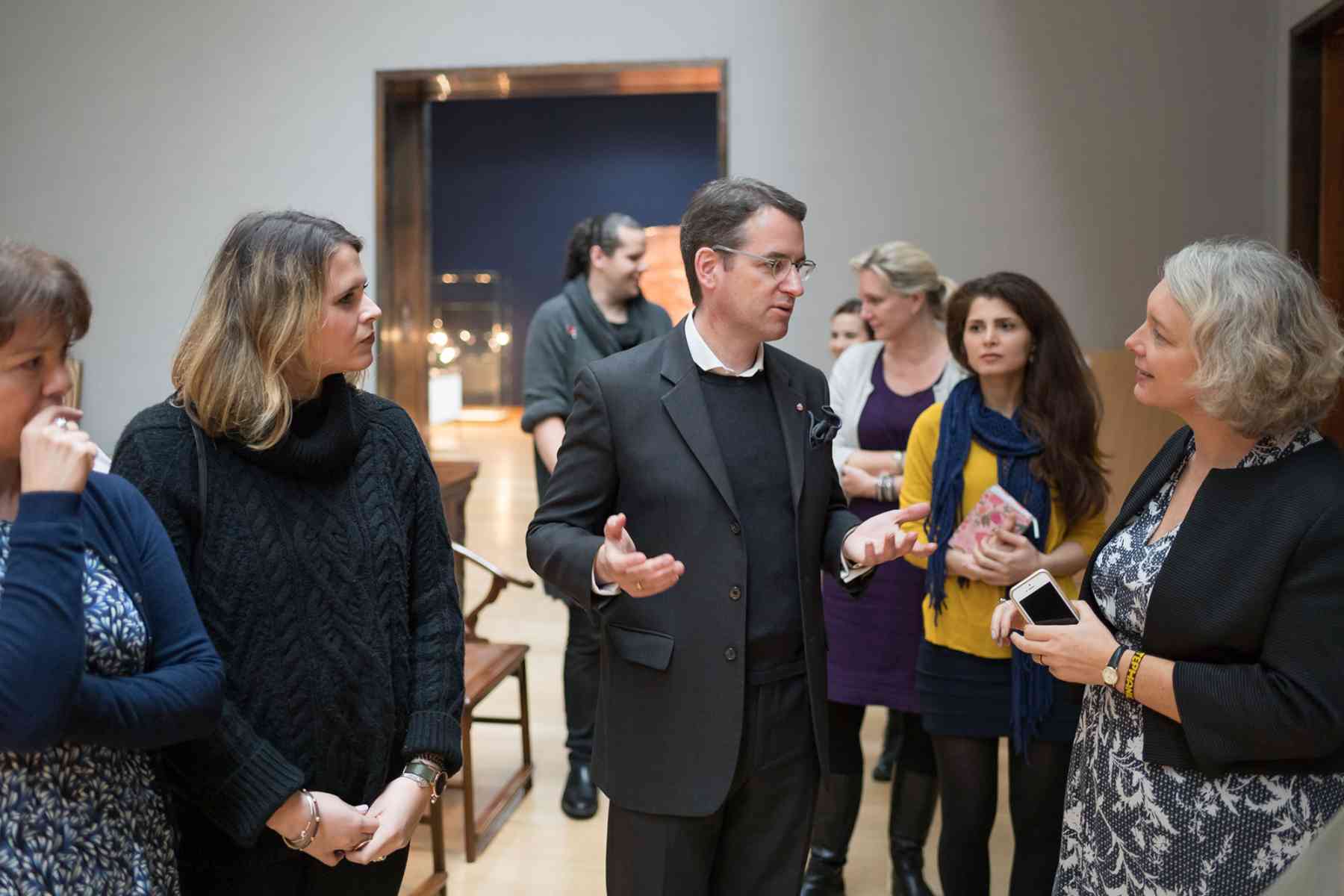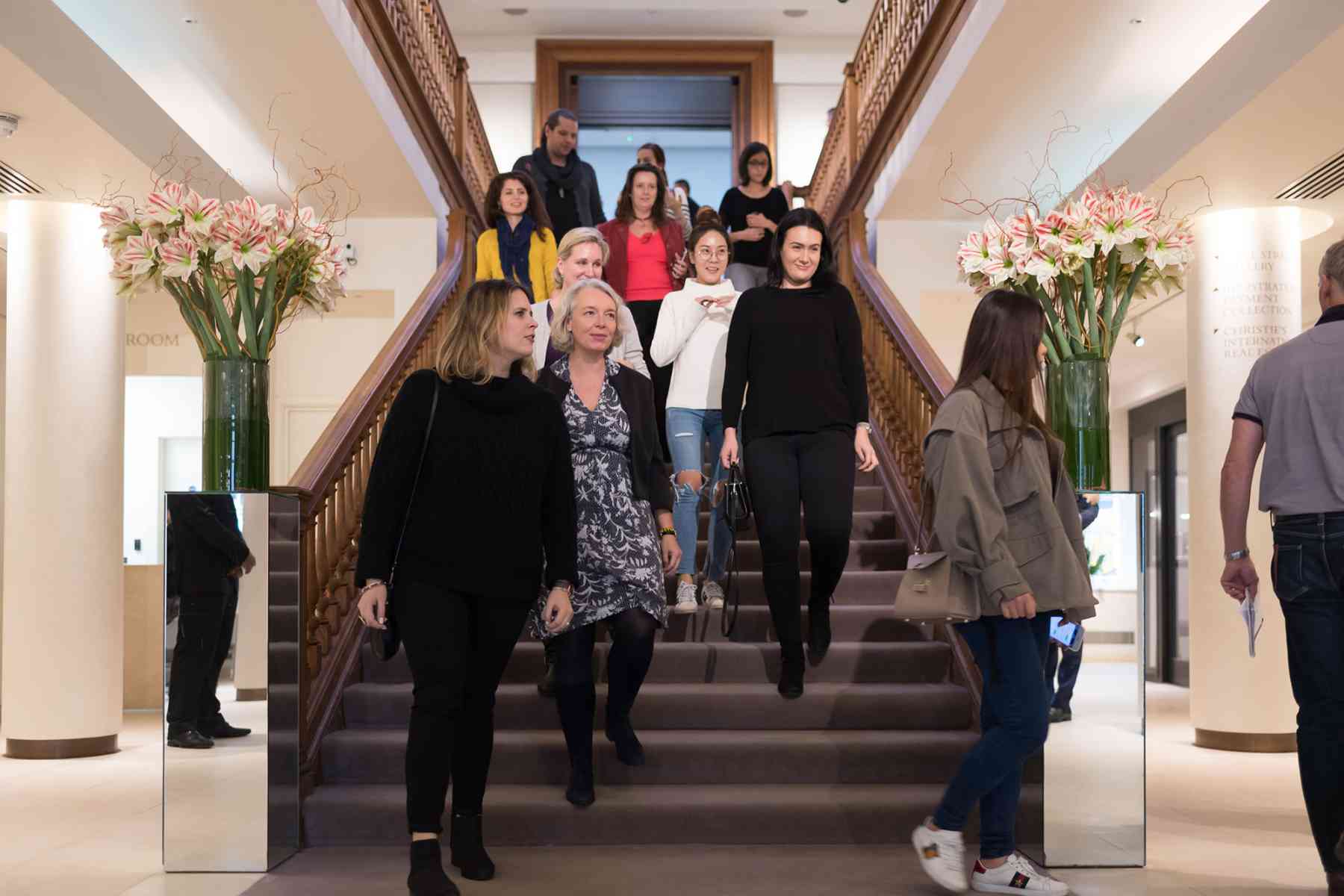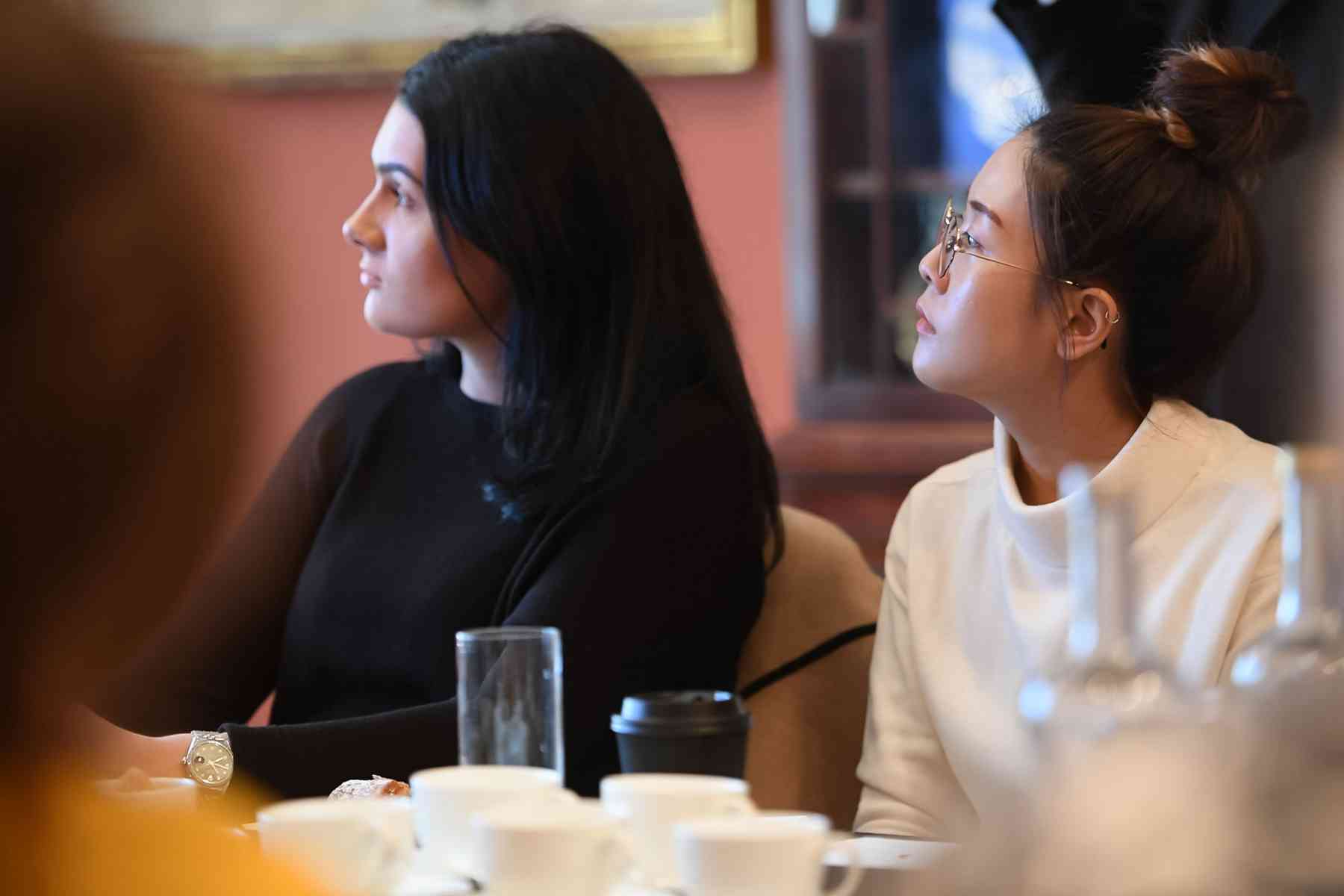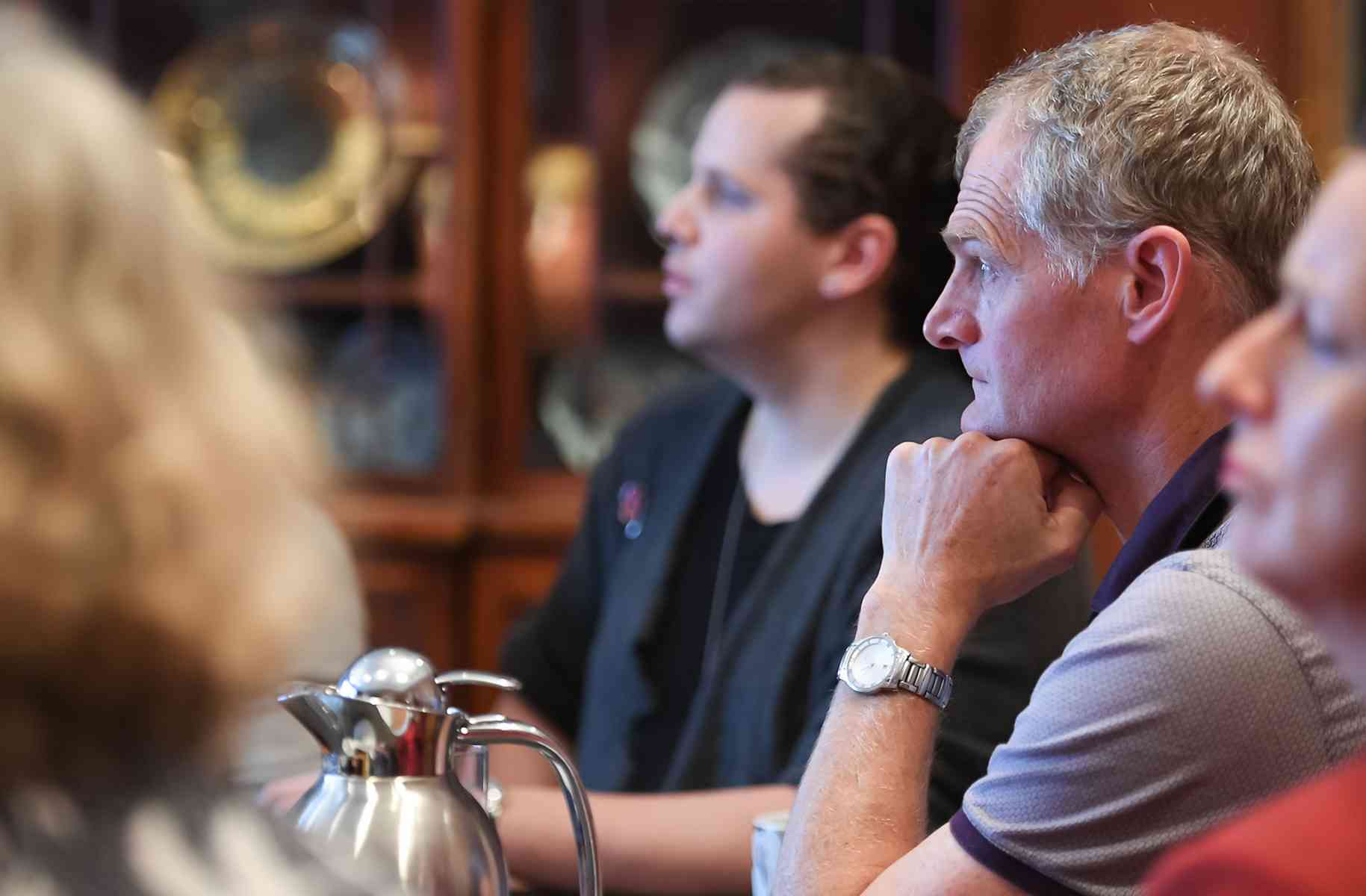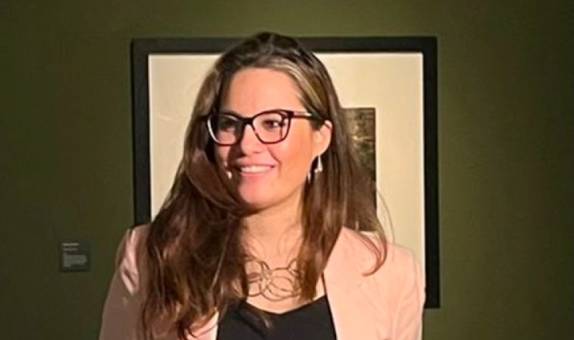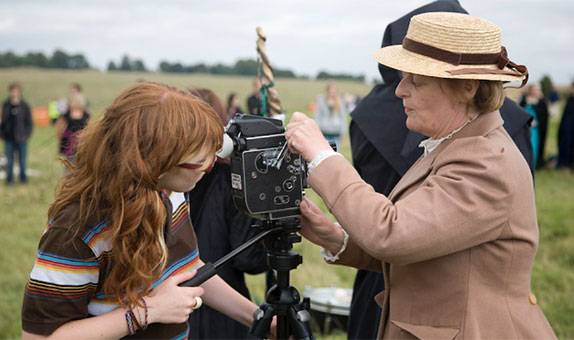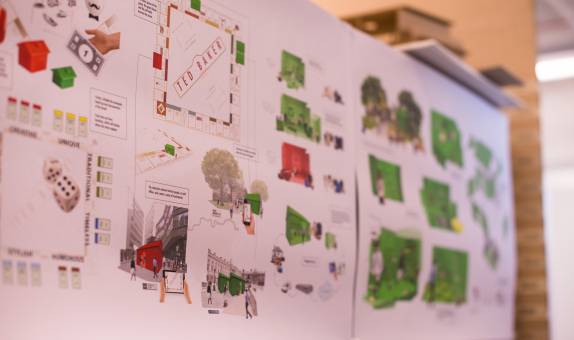Art Business MA
Why choose this course?
If you are interested in developing a career in the commercial art world, this course will prepare you for the opportunities lying ahead. You will develop the key skills and gain the knowledge to understand global art markets in the context of their ever-changing artistic, cultural and economic environments.
Making the most of its location in Europe's art market capital in London, this Art Business MA degree draws on a high standard of interdisciplinary academic and practical teaching by recognised industry professionals. It also offers insights from art market practitioners, both those with long-standing careers and those who are rising entrepreneurs of the millennial generation. The curriculum is carefully designed to balance skills training with academic rigour, and to combine core business and legal concepts with industry-specific knowledge in order to reflect the diverse professional landscape students will enter on graduation. Our students benefit from frequent field trips to different art businesses, including galleries, auction houses and art fairs.
The course is delivered in partnership with the Kingston Business School, enabling students to benefit from the know-how of business school experts, as well as from the creative and stimulating atmosphere of the Kingston School of Art. This unique partnership makes us the only institution in the country to deliver an Art Business programme within the environment of a business school.
| Mode | Duration | Attendance | Start date |
|---|---|---|---|
| Full time | 1 year | 2 days a week | September 2025 |
| Full time | 2 years including professional placement | 2 days a week plus placement year | September 2025 |
| Part time | 2 years | 1 day a week | September 2025 |
| Main Location | Kingston School of Art, Knights Park |
Reasons to choose Kingston
- Learn about the mechanisms of the commercial art world in the heart of the international art market.
- This is the only Art Business MA in the UK conceived and taught in partnership between an art school and a business school.
- There are hands-on workshops and access to London's art scene. You will be able to visit sites, take behind-the-scenes tours, and take part in optional overseas study trips*.
*Students may be required to cover additional costs, such as travel.
The Art School Experience
As part of Kingston School of Art, students on this course benefit from joining a creative community where collaborative working and critical practice are encouraged.
Our workshops and studios are open to all disciplines, enabling students and staff to work together, share ideas and explore multi-disciplinary making.

What you will study
You will benefit from a systematic approach to understanding the core functions of the art market across different sectors and geographies, understanding the importance of pre-modern markets and learning about the complexities of today's international art market. This will allow you to cater your studies to your individual needs and future career interests.
The History of the Art Market focuses your understanding of past and present art business practices and changes to the art market over the past 400 years. Object Analysis & Appraisal will teach you how to handle and value an artwork: how an art work is catalogued, its commercial value established and what happens during the process of selling a work of art. Art valuation classes are through lively and hands-on workshops and seminar sessions with teaching staff and art market professionals.
Through the Business and Art module, delivered at Kingston Business School, you will understand the complex and dynamic relationship between art and commerce. You will be taught the latest business practices, which will be tied to the context of the commercial art world.
Modules
Additional year with placement
This course gives you both an overview of the art market business and the opportunity to gain detailed knowledge in a specific area of fine art and collectibles.
Fundamental to the course are modules which introduce you to wide-ranging subjects, from connoisseurship, object identification and authentication to cataloguing.
The modules will enhance your business practice skills, and through the research element of the programme, you'll develop your critical analysis skills as well as detailed knowledge within a chosen specialist area.
Core modules
History of the Art Market
30 credits
This module introduces you to the history of the art market, an interdisciplinary academic discipline of great dynamism. It draws attention to the developments of the key agents in the art market within their historical perspective, such as notion of patronage, distribution channels for works of art and the auction and dealer systems. The module emphasises the way in which the European phenomena of collecting and exchange were globalised in the 20th century and continue to develop in multiple ways in the 21st century. The module guides you through the resources available for research into the history of the art market and introduces you to the cross-disciplinary skills involving economic, political and collecting histories, which are necessary to develop a rounded understanding of the subject. On completion you should achieve a new perspective upon the history of art within its markets, integrating the aesthetic and the economic. Taught through a series of lectures and seminars, it is assessed by presentation and a critical essay. Independent learning skills will be developed throughout the module, through directed reading and study visits.
Object Analysis & Appraisal
30 credits
This module introduces students to the specifics of object analysis and valuation within a primary and secondary market context. Students will examine and critically analyse objects for different purposes, and examine the role of different stakeholders within the market, including gallerists, auction houses and collectors. The module is delivered through a series of lectures, seminars and debates and built around contributions from visiting professional practitioners. The module is assessed through a practical investigative exercise involving the research for and production of an auction catalogue in which the practice of valuation is thoroughly explored. Students will submit an individual catalogue.
Business and Art
60 credits
This module is designed to break down the barriers between art and commerce, blending these dual imperatives to fulfil and sustain personal passions and the aesthetic, while building sustainable revenue streams and investment. This module considers the elements of commercialising art in its broadest sense, and building and managing an arts-based business within current local and global environments. The module will react to current opportunities and challenges affecting the broader economy and the art market in particular with a special emphasis on technology and innovation, sustainability and governance. It also considers the role and opportunities presented by art within businesses and the broader commercial environment.
Major Project
60 credits
The Major Project is the capstone module of the Masters programme. Focusing on critical research, analysis, and presentation, the capstone project enables students to synthesise and apply the knowledge and skills they have acquired throughout the course. The module provides students with an extensive programme of training and resources which are designed to aid them in the development, planning, research, and writing of their projects. It brings together students from several MA programmes in the School of Critical Studies and Creative Industries and embeds a range of interdisciplinary and practice-led approaches to their respective fields of study. It provides students with the opportunity to craft their own approach to their field through critical-theoretical and/or creative, practice-based research. The Major Project can accommodate research projects developed through a range of academic and professional contexts depending on the motivation and interests of the student. It can be presented either as a written dissertation or as a creative project, such as a portfolio comprising a chosen medium or media, accompanied by a critical commentary. The intensity of the workload increases across the three teaching blocks, allowing increasing focus in line with the level of your expertise.
Optional modules
Professional Placement
120 credits
The Professional Placement module is a core module for those students following a masters programme that incorporates professional placement learning, following completion of 120 credits. It provides you with the opportunity to apply your knowledge and skills to an appropriate working environment, and to develop and enhance key employability skills and subject-specific professional skills in your chosen subject. You may wish to use the placement experience as a platform for your subsequent major project module, and would be expected to use it to help inform your decisions about future careers.
Many postgraduate courses at Kingston University allow students to do a 12-month work placement as part of their course. The responsibility for finding the work placement is with the student; we cannot guarantee the work placement, just the opportunity to undertake it. As the work placement is an assessed part of the course, it is covered by a student's Student Route visa.
Find out more about the postgraduate work placement scheme.
Entry requirements
Teaching and assessment
The course is assessed through a mix of academic essays, seminar papers and presentations, case studies, and a major research-based project or dissertation. There are no written exams, but a focus on coursework only.
Who teaches this course?
This Art Business course is delivered by a unique collaboration between the Kingston School of Art and Kingston Business School.
Kingston School of Art has its roots in the studio-based approach of Britain's art school system (the original School of Art was founded in the 1890s).
You'll also hear from numerous art market professionals who are on hand to share their experience and expertise, including speakers from auction houses, galleries, art fairs, art agencies, communication and recruitment agencies, and art market journalists.
Fees for this course
Additional costs
Depending on the programme of study, there may be extra costs that are not covered by tuition fees which students will need to consider when planning their studies. Tuition fees cover the cost of your teaching, assessment and operating University facilities such as the library, access to shared IT equipment and other support services. Accommodation and living costs are not included in our fees.
Where a course has additional expenses, we make every effort to highlight them. These may include optional field trips, materials (e.g. art, design, engineering), security checks such as DBS, uniforms, specialist clothing or professional memberships.
Additional costs
For this course you can take part in optional study visits and/or field trips.
You may incur extra costs associated with your studies, which you will need to plan for.
In order to help you budget, the information below indicates what activities and materials are not covered by your tuition fees:
- Personal laptops.
- Personal copies of books (not obligatory).
- Optional study visits and field trips.
- Mandatory field trips to London.
- Printing costs.
- Cost of visiting external shows and exhibitions.
Facilities
This programme is based at the Kingston School of Art facilities, bursting with creative energy at Knights Park where our art, design and architecture campus sits on the Hogsmill River, with its restaurant and bar opening on to the waterside.
The relatively small campus has a friendly, creative feel and benefits from recently refurbished workshops and studios, a reception area with a gallery, art shop and space, and the light and airy open-plan learning resources centre.
There are also well-equipped lecture theatres, seminar rooms and computer resources on campus, as well as the renowned Stanley Picker Gallery.
Find out more about the Kingston School of Art Knights Park.
After you graduate
Our students come from all corners of the world and often take the learning of the course back to their own countries. Recent graduates have gone on to secure roles in commercial galleries, major auction houses, and art insurance. Other graduates have set up galleries and online platforms, managed collections and advised collectors.
What our graduates say
Links with business and industry
Our links with professional practice provide a real-world base for our courses. London – the world's third-largest art market – is on our doorstep. The capital of the European art market, London offers an invaluable insight into the industries from the world's largest auction houses to the most innovative start-ups.
Teaching staff on the course also keep close professional links to the art world and ensure your studies are kept up to date and relevant to the changing work environment.
Research areas
Many of the staff in Kingston School of Art are research active. This ensures they are in touch with the latest thinking and bring best practice to your studies.
Kingston School of Art has a well-established and internationally-renowned research culture that encourages and supports high-quality, innovative research through practice, history and theory. This rich spectrum encompasses the critical practices of fine artists, curators and cultural commentators and historians, alongside that of designers, filmmakers and architects. All have extensive professional, industrial and commercial links.
Our aim is to foster a dynamic and stimulating environment that realises and supports individual and collaborative research projects. This is achieved through an exchange of ideas and practices within and across the disciplines, directly benefitting the wider academic community as well as industry, business and the public.
Course changes and regulations
The information on this page reflects the currently intended course structure and module details. To improve your student experience and the quality of your degree, we may review and change the material information of this course. Course changes explained.
Programme Specifications for the course are published ahead of each academic year.
Regulations governing this course can be found on our website.
